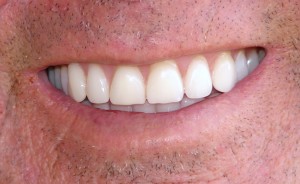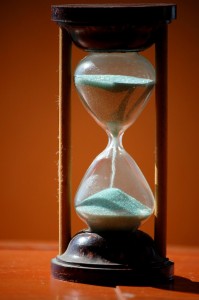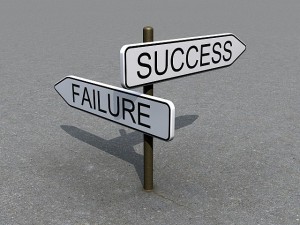 Life is a question of decision and each decision we make directs our destiny.
Life is a question of decision and each decision we make directs our destiny.
Frequently we think our destiny is predetermined and we have no options. We believe we are like a ship on the high seas with no motor, sail or rudder. The truth is we have always had a motor, sail and rudder. Whether we use them or not is an entirely different story. While it is true we cannot control the wind, we can utilize what we have at hand to take control of our direction.
Let’s look at three everyday examples about our options and how our decisions affect and/or determine our direction.
1) Coffee
 Many enjoy having a nice cup of coffee in the morning. At the same time most people, if not all, also like to have white teeth.
Many enjoy having a nice cup of coffee in the morning. At the same time most people, if not all, also like to have white teeth.
Nevertheless, have you seen how coffee stains things?
If coffee stains a cup of coffee, can you imagine what it does to our teeth?
So armed with this knowledge we can make a decision; if we don’t want to stain our teeth with coffee, we can choose not to drink it…
I know what you may be thinking, “I prefer to drink my coffee!”
If this is the case, we can brush our teeth well each time we drink coffee or pay later for a special treatment to whiten our teeth if it is important to us. Life is a decision, we can choose to drink coffee and then do something to whiten our teeth or, simply not drink coffee.
2) Happiness
 Though it may sound somewhat like looking into a crystal ball, we can “predict the future” with the decisions we make. My friend Francisco Novoa is fond of saying, “You can be right or you can be happy but you can’t always be both.”
Though it may sound somewhat like looking into a crystal ball, we can “predict the future” with the decisions we make. My friend Francisco Novoa is fond of saying, “You can be right or you can be happy but you can’t always be both.”
By making a decision that, “We must always be right,” more than likely we are setting ourselves up for times when we will not be happy because someone else will also want to be right and have a different way of thinking. As an alternative, we can instead simply make the following decision:
“It is not always necessary for me to be right; instead I choose to be happy.”
3) Punctuality
 In our professional lives we can also “predict the future” with what we do. The great majority of people choose to be “On Time” for their meetings and other important obligations. If we know it takes 45 minutes to get to work with no obstacles or other inconveniences and if we leave 45 minutes ahead of the stipulated time, we will be “On Time” if nothing goes wrong. But, if anything out of the ordinary happens, we will surely arrive late.
In our professional lives we can also “predict the future” with what we do. The great majority of people choose to be “On Time” for their meetings and other important obligations. If we know it takes 45 minutes to get to work with no obstacles or other inconveniences and if we leave 45 minutes ahead of the stipulated time, we will be “On Time” if nothing goes wrong. But, if anything out of the ordinary happens, we will surely arrive late.
Wouldn’t it be better to decide to take measures to arrive 15 to 20 minutes ahead of time for our appointments and other important obligations, including work?
If there are no inconveniences, we can take advantage of the time we have by arriving early by reading, preparing for whatever it is we will be doing, or by just relaxing and playing over in our mind a video of the results we desire. If, on the other hand, there is some kind of inconvenience, we have a margin of error which will still allow us to get on time if the obstacle is not too great.
As an added benefit, those who arrive early tend to be those who are more productive, better compensated, more respected and more successful in any organization. They are better prepared for what may come and better manage trouble along the way.
Is it necessary to be on time to be successful?
 In the literal sense, it is not, though it is highly recommendable. Those who consistently arrive late will have to work two or three times harder to achieve the same success as someone who habitually arrives on time.
In the literal sense, it is not, though it is highly recommendable. Those who consistently arrive late will have to work two or three times harder to achieve the same success as someone who habitually arrives on time.
Life doesn’t have to be so complicated and, in its essence, is really quite simple. By making smart decisions with regards to those things we must do, we can achieve what we have always desired because life is question of decision.
∞ Rob McBride ∞
LL III 30

